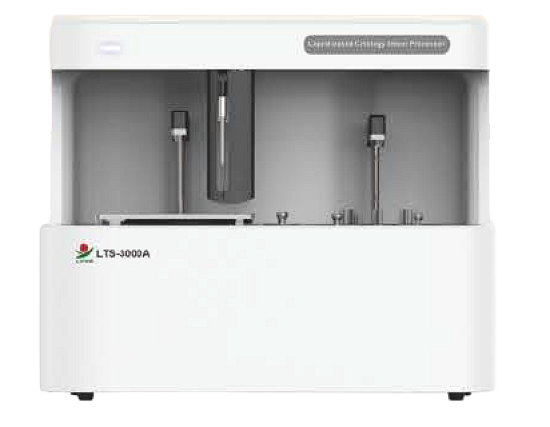LTS-3000A
The LTS-3000A is a liquid-based cytology smear processor that automates specimen prep, sedimentation, and Pap/HE staining. By combining density-gradient centrifugation, natural sedimentation, and charge capture, it produces slides with clear backgrounds and high diagnostic cell capture (5,000–50,000 cells/slide). With a batch throughput of 1–8 samples in under 60 minutes, barcode error reduction, and anti-occlusion systems, it offers reliable and efficient performance. Compact in size yet powerful, the LTS-3000A is a cost-effective solution for clinical and pathology labs performing cytology diagnostics.


